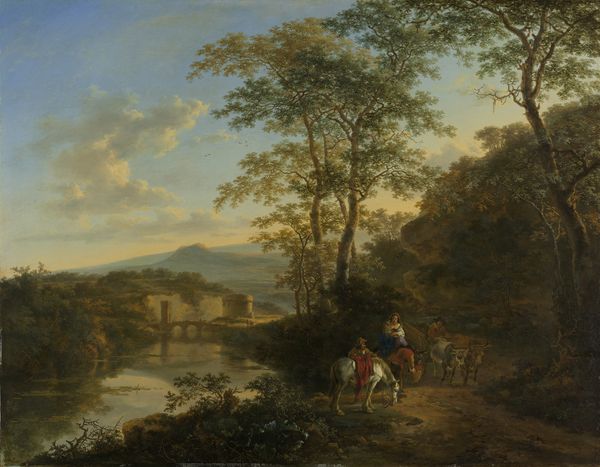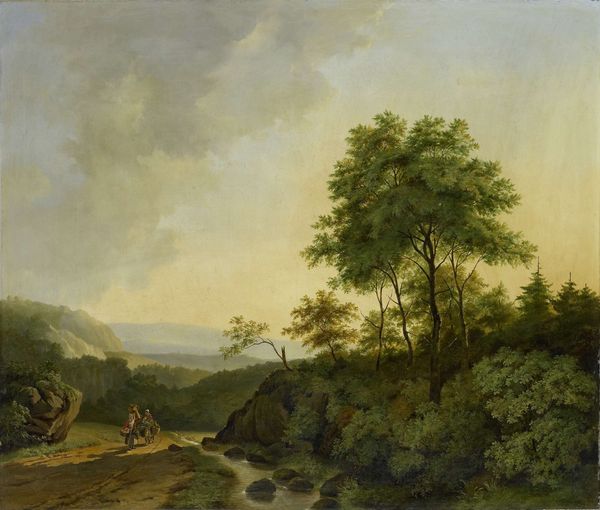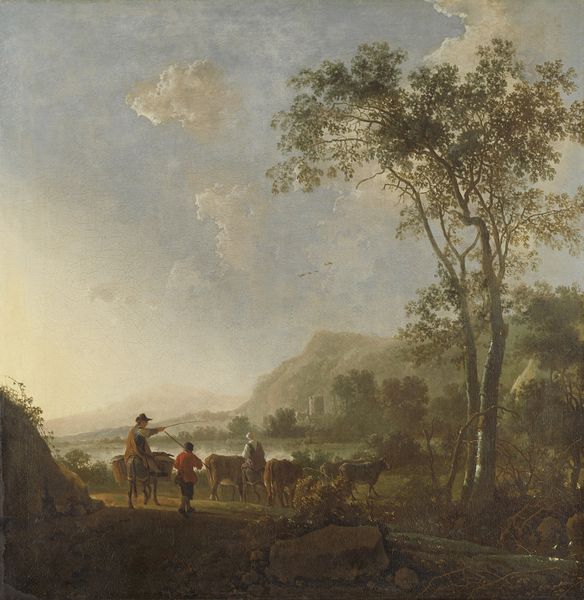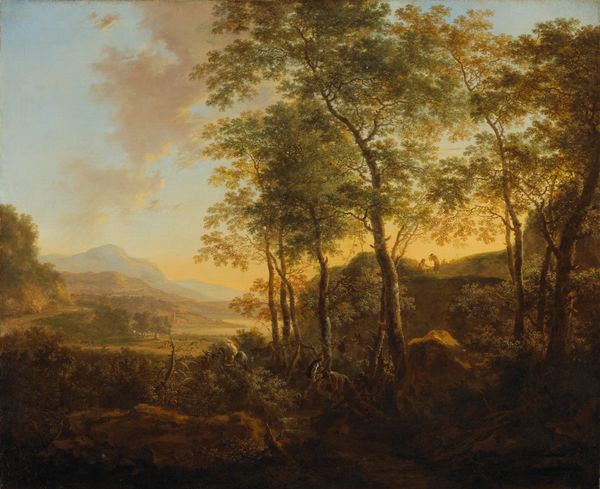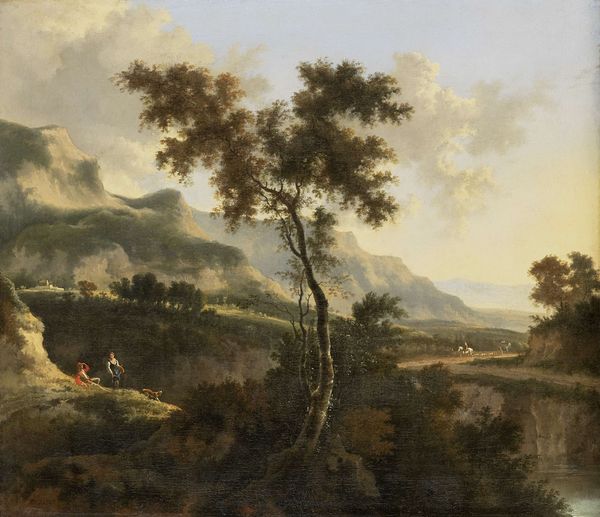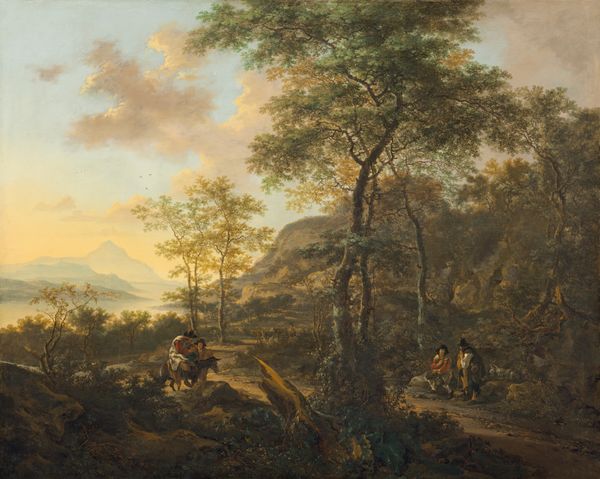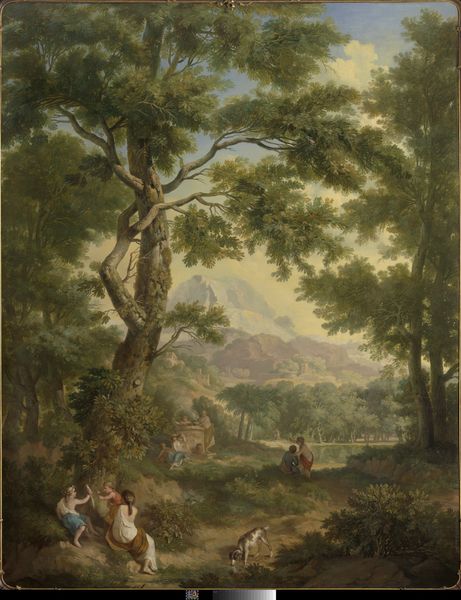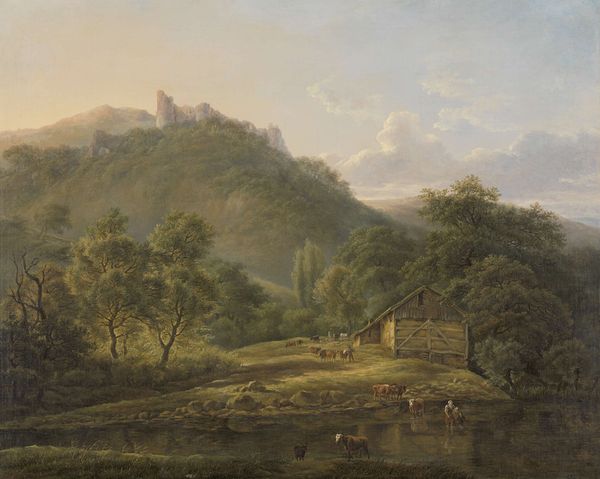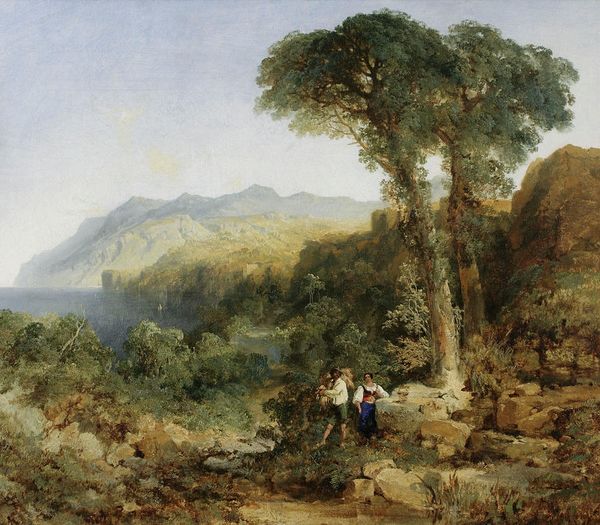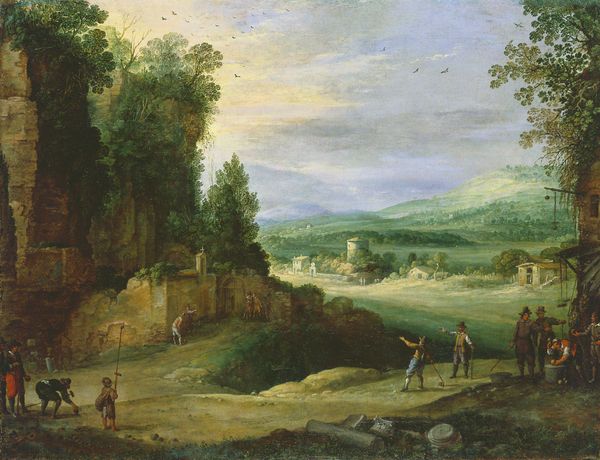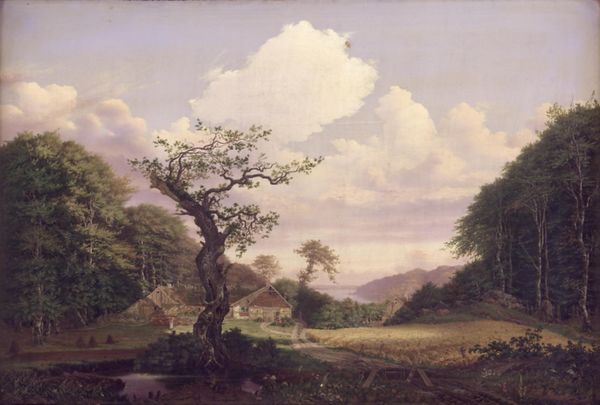
Cicero Discovering the Tomb of Archimedes 1787
0:00
0:00
pierrehenridevalenciennes
Musée des Augustins, Toulouse, France
painting, oil-paint
#
neoclacissism
#
narrative-art
#
painting
#
oil-paint
#
landscape
#
classical-realism
#
figuration
#
oil painting
#
history-painting
#
academic-art
Dimensions: 162 x 119 cm
Copyright: Public domain
Pierre-Henri de Valenciennes rendered this scene using oil paints, a medium favored for its ability to capture light and depth, around the turn of the 19th century. Oil paint, made from ground pigments suspended in oil, allowed Valenciennes to build up layers of color, creating the atmospheric perspective that gives the landscape its vastness. The smooth application of paint, visible in the sky and distant mountains, contrasts with the more textured brushwork used to depict the rocks and foliage, adding a tactile quality to the scene. The labor involved in creating such a painting extends beyond Valenciennes's own hand. It includes the extraction and processing of raw materials, the grinding of pigments, and the preparation of the canvas. These processes, often unseen, are integral to the artwork's existence, reminding us of the many hands that contribute to a single artistic creation. By considering the materials and processes involved, we can appreciate how Valenciennes transformed ordinary substances into a window onto another time, blurring the lines between art, craft, and the social context in which they are made.
Comments
No comments
Be the first to comment and join the conversation on the ultimate creative platform.
